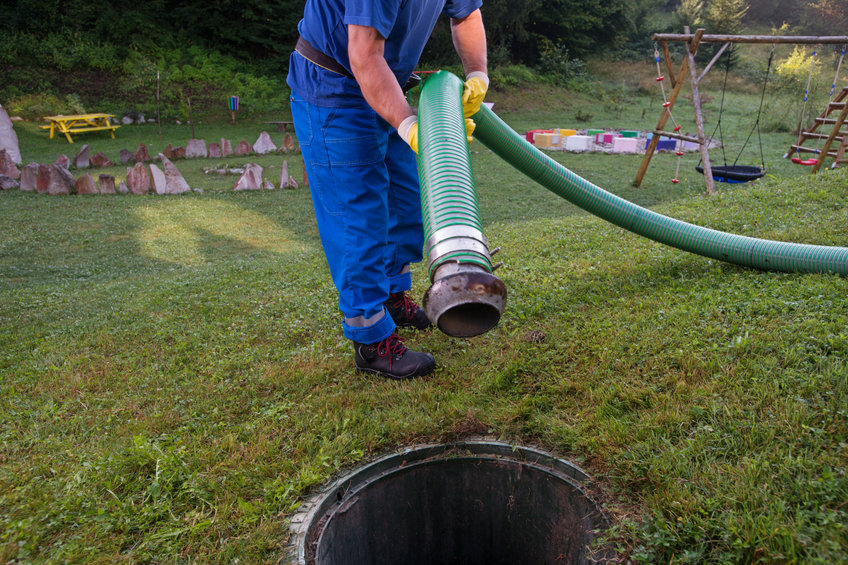For those of us who live in more rural areas in Rodney, Whangaparaoa or the Hibiscus Coast, we are all probably quite familiar with that patch of grass on the back lawn with a white plastic (or ceramic) mushroom sticking up out of it or those more sophisticated green set-ups with a couple of flashing lights. That’s where the septic tank lives and when cared for properly, we don’t have to give it too much thought, fortunately. However, when it’s not working efficiently or it’s clogged, that’s far from good.
So, let’s talk about how to care for septic tanks, how they work and what we should or should not do.
Septic tanks 101
Even though many households rely upon them, a lot of people still aren’t sure how to care for septic tanks, or how they work, which to a degree is understandable. But, in order to keep your septic system working properly, what you put down every single drain in your home matters. Don’t think you’re going to get away with anything simply because you flushed something down the toilet, and it disappeared.
Items like dental floss, paint, wipes, sanitary products, grease and oils won’t decompose properly and will clog your drain system up, causing problems you don’t need. And you must also keep an eye on the type of cleaners you use. Using the wrong types can destroy the bacteria in your tank and muck up the whole system.
How septic tanks work – in short
A septic tank system contains zillions of natural bacteria. They degrade the solid waste. Those bacteria release enzymes. These are handy little helpers that break down organic matter into simpler nutrients. Bacteria can then gobble up the waste molecules more easily and speed up the process of degrading solids. Too many chemicals, however, affect bacteria and enzymes: the beneficial ‘good’ microbes are killed off, solid waste is left untreated and your septic tank overflows causing you trouble, hassle and quite a stink.
Cleaner overkill?
Septic systems can handle small amounts of disinfectants, but disinfectants in high concentrations or antibacterial cleaners can kill off the good microbes in septic tank systems. So, if you are concerned about the impact of their cleaning products on your septic system, as you ought to be, you should avoid bleaches and cleaning products that contain ‘quats’.
Despite what they may sound like, quats are not some sort of painful exercise. Quats are registered pesticides commonly found in loads and loads of household cleaning products, such as disinfectants, dishwashing liquids, antibacterial soaps, disinfectant sprays and wipes, toilet bowl cleaners, window cleaners, floor products, laundry detergents, fabric softeners, automatic dishwashing detergents, baby care products, air fresheners, even shampoo.
If a product claims to be antibacterial or is designed to kill germs, then it will contain quats. And yes, quats do effectively kill many kinds of microbes like E. Coli and Staph. Aureus, but there are big side effects that come along with that killing power. Basically, too many harsh chemicals kill the microbes that are essential to the separation of waste in your septic system.
 What cleaning products should not be put in a septic tank
What cleaning products should not be put in a septic tank
By checking the tiny little labels on cleaning products, you can avoid products with long complex chemical names like:
- Benzalkonium chloride
- Benzethonium chloride
- Alkyl dimethyl benzyl ammonium chlorides (C12-16)
- Alkyl dimethyl benzyl ammonium chloride (C14 60%, C16 30%, C12 5%, C18 5%)
- Alkyl dimethyl ethylbenzyl ammonium chloride (C12-14)
- Alkyl dimethyl ethylbenzyl ammonium chlorides (C12-18)
- Didecyldimethylammonium chloride
- Dioctyldimethylammonium chloride
A better cleaner for your septic tank
You can also choose to use an enzymatic cleaner for all your cleaning. Enzymatic cleaners contain enzymes that break down the biological components in messes, stains, and odours. They use non-pathogenic, ‘good’ bacteria to digest wastes, soils, stains and horrible smells but don’t muck up your septic tank.
Septic tank care
You need to pump your tank regularly to keep your system intact. How often you get it pumped out depends on your household size, total wastewater generated, the volume of solids in your wastewater, and your septic tank size. Most septic tanks need to be pumped out around every three to five years.
There’s a lot that can go wrong with your septic tank if it’s not looked after correctly. If you notice any of the following problems, contact a professional plumber for help.
- Odours, soggy spots in the lawn or drain field area
- Plumbing or septic tank backups
- Gurgling sounds in your plumbing system
- Slow draining basins, sinks, tubs or showers
If you’d like more information on how to care for septic tanks or have any questions, simply call 027 265 4949.
HIRE FLOWFIX PLUMBING LTD
Call 027 265 4949 for a reliable, local plumber. We cover the North Shore, Whangaparaoa, Millwater, Silverdale, and Orewa to Warkworth. We will respond to your call and sort out your plumbing or drainage issues fast.


 What cleaning products should not be put in a septic tank
What cleaning products should not be put in a septic tank